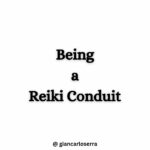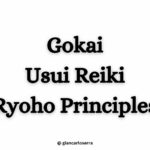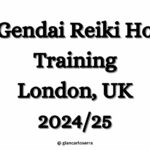
Background to Regulation
In February 1996, HRH Prince Charles proposed the Integrated Medicine initiative to encourage orthodox and complementary healthcare to work together within the NHS for the benefit of the British public.
For this to happen, complementary therapies were required to be self regulated and to develop robust systems to ensure high standards of practice and levels of care, to bring them in line with other healthcare professionals who are also expected to hold nationally recognised qualifications.
Advisory Body
The Reiki Council is an advisory body and is made up of Reiki Professional Associations, who provide advice about Reiki
Regulatory Bodies
The Regulator regulates the practice of Reiki (and other therapies/disciplines), primarily to protect the public. There are currently two Regulatory Bodies accepting registration from practitioners of Reiki and other complementary therapies in the UK.
The role of the regulatory body is primarily to protect the public in that it gives the public and employers quality assurance that the practitioner’s qualifications and/or experience is such that it meets the minimum standard required for professional practice.
It also gives the same quality assurance to doctors and all other health care professionals who may use a national register. Registrants will have to be insured and sign up to a CPD Policy (continuing professional development), disciplinary procedures and code of professional conduct and ethics.
Each practitioner should make their own decision as to which is most appropriate for their particular circumstance. It is important to note that currently no Reiki organisation or Regulatory Body can prevent any practitioner from conducting their business – practitioners are only subject to their requirements and any disciplinary procedures by having chosen to be so by registering with them.
Reiki Council
In July 2008 the Reiki Regulatory Working Group (RRWG) announced that it had completed its work towards regulation and would now take on the role of Advisory Body for Reiki, representing Reiki Professional Associations.
It was agreed that the Reiki Regulatory Working Group would be renamed the Reiki Council with effect from 15 July 2008, to reflect its new role.
Website: www.reikicouncil.org.uk
Professional Bodies
There are currently a number of professional associations representing Reiki practitioners in the UK, of which the UK Reiki Federation is one of the largest. The Reiki Guild, of which Debi Barr is a member, is another Professional Body.
A professional association’s role is to represent its membership, looking after the needs of the professional therapist.
A professional body will offer insurance, CPD opportunities, journals or newsletters, support groups, advertising leaflets, conferences etc.
In addition, professional associations have a public role as the ‘faces‘ of the professions they represent – they receive innumerable enquiries from the public about Reiki, and for requests for names of practitioners and teachers. It helps to promote these through advertising and attendance at exhibitions and conferences.
National Occupational Standards (NOS)
NOS describe the skills, knowledge and understanding needed to undertake a particular task or job to a nationally recognised level of competence. They focus on what the person needs to be able to do, as well as what they must know and understand to work effectively.
They cover the key activities undertaken within the occupation in question under all the circumstances the job holder is likely to encounter.
This definition is supported by UK Commission for Employment and Skills (UKCES).
What are the benefits of NOS?
NOS are tools to help individuals, organisations and training providers to improve performance. They are useful for carrying out a wide range of activities some of which are described below.They describe the minimum standard to which an individual is expected to work in a given occupation
– Set out a statement of competence which bring together the skills, knowledge and understanding necessary to do the work.
– Provide managers with a tool for a wide variety of workforce management and quality control.
– Offer a framework for training and development.
– Form the basis of Vocational Qualifications (VQs) on the Qualification and Credit Framework (QCF) and Scottish Vocational Qualifications (SVQs).
Skills for Health have worked together with GRCCT and other experts from the sector to develop an extensive range of competences/National Occupational Standards (NOS) in a range of complementary therapies.
National Occupational Standards (NOS) are statements of competence and are written to measure outcomes. National Occupational Standards describe good practice. Essentially, standards describe what happens in the workplace — not what people are like.
In 2009 the revision of National Occupational Standards for Complementary and National Healthcare was completed, under the guidance of Skills for Health. There was extensive consultation with the public and practitioners, and representatives from 12 different therapy groups worked on the revisions over a 12 month period
The National Occupational Standards for Reiki are included within these revisions, and are made up of three separate competencies, the first two of which are common to all therapy groups, and the third one being specifically for Reiki.
The competencies, all of which would need to be achieved, may be downloaded from this website courtesy of Skills for Health who own copyright of the competences:
– Explore and establish the client’s needs for complementary and natural healthcare (PDF 80kb).
– Develop and agree plans for complementary and natural healthcare with clients (PDF 80kb).
– Provide Reiki to clients (PDF 108kb).
A full set of the standards are also available for download from the Skills for Health website at www.skillsforhealth.org.uk.
Legal Requirements Reiki Practitioners Have To Adhere To In The United Kingdon
The Advertising Standards Agency Code of Advertising Practice states that Reiki practitioners shall not make any allegations that could be considered specific health or medicinal claims, especially relating to the cure of any disease.
– The Cancer Act of 1939 prevents Reiki Practitioners from claiming they can help cure cancer in the UK. However, this does not prevent Reiki Practitioners from offerings Reiki treatments to a cancer patient.
– The Consumer Protection from Unfair Trading Regulations 2008 sets out the way in which Reiki practitioners in the United Kingdom can advertise their services, and are designed to protect the consumer from misleading adverts, false claims, and the like. These regulations have important implications for how Reiki practitioners sell and advertise Reiki treatments, on their website and other advertisements.
– The Health and Safety at Work Act 1974 as amended by the Legislative Reform (Health and Safety Executive) Order 2008 have a variety of implications concerning Reiki Practitioners’ duty of care to their clients and the public.
– The Health and Safety (First-Aid) Regulations 1981 sets out Reiki practitioners’ responsibility to have first aid facilities for their employees and themselves.
– The Data Protection Act of 1988 sets Reiki practitioner’s obligations for keeping certain information secure, like personal details including consultation forms, signed disclaimers, treatment notes, contact details etc.
– Client details and written records are strictly confidential and must be kept in a locked in safe custody for eight years from the time of the last consultation or if the client is a child, until her/his 25th birthday, or 26th birthday if the client was 17 when treatment ended. The client can also request to disclose details in his/her file.
– No disclosure may be made to a third party, including any member of the client’s own family, without the client’s consent, unless it is required by due process of the law.
– If treating a child under 16 Reiki practitioners must ensure that the parent/carer/guardian signs a specific consent form to show that the practitioner has advised them that according to Law they must consult a Medical Practitioner regarding their child’s health.
– If another therapy is to be used in conjunction with Reiki, permission must be obtained from the client at the outset.
– The Public Health (Control of Diseases) Act 1984 and The Public health (Infectious diseases) Regulations 2010 set out a list of diseases that must be reported to authorities should practitioners come across them.
These are:
– Acute encephalitis, Acute meningitis, Acute poliomyelitis, Acute infectious hepatitis, Anthrax, Botulism, Brucellosis, Cholera, Diphtheria, Enteric fever (typhoid or paratyphoid fever), Food poisoning, Haemolytic uraemic syndrome (HUS), Infectious bloody diarrhoea, Invasive group A streptococcal disease and Scarlet fever, Legionnaires’ disease, Leprosy, Malaria, Measles, Meningococcal septicaemia, Mumps, Plague, Rabies, Rubella, SARS, Smallpox, Tetanus, Tuberculosis, Typhus, Viral haemorrhagic fever (VHF), Whooping cough, Yellow fever.
Working with animals
The Protection of Animals Act 1911 and The Veterinary Surgery Act 1966 (Amended) sets out ways to work with animals. Prior to Reiki treatments given to animals, practitioners should ascertain whether the animal has been seen and diagnosed by a qualified vet.
It’s important to know if the animal has been diagnosed with a physical, mental or other health related issue.
When working with animals Reiki Reiki practitioners should be aware of notifiable diseases, which owners/carers are legally required to report, and for which published guidance exists.
Insurance
All Reiki Practitioners must be adequately insured to practice. The insurance policy must state:
– Provision for public liability.
– Employee liability (if personnel are employed).
– Professional indemnity.
– Provision for professional treatments.
If offering Reiki to animals on a professional (i.e. paid) basis, insurance cover should be extended to animal treatments.
It should not be assumed that Animal Reiki treatments are automatically covered within Reiki Practitioner insurance. An Animal Reiki level 2 training certificate is often required.
In what circumstances would practitioner’s break client confidentiality?
– If practitioners were made aware that their client has suicide feelings. The practitioner should immediately contact the client’s medical practitioner, however they not required to disclose the information in the file, but simply to ‘flag up’ that the client wants to commit suicide.
– A parent or guardian wilfully fails to provide adequate medical aid for a child under the age of 16 may be committing a criminal offence.
– Practitioners should determine between serious harm to the individual about whom the information relates or serious harm to others. In order to prevent serious harm or death to others, confidential information can be disclosed without prior consent. This is likely to be defensible in common law in the public interest.
– The Suicide Act of 1961 applies to clients who expresses suicidal feelings.
READ ALSO
Giancarlo is a fully qualified Spiritual Healer, Reiki Master, Hypnotherapist and Past Life Regression Therapist. He is a Consultant Expert Healer of the College of Psychic Studies in London.
He is a Master Teacher member of the UK Reiki Federation and registered with the Complementary & Natural Healthcare Council, Federation of Holistic Therapists, the Spiritual Regression Therapy Association and the General Hypnotherapy Register. Read more.


















